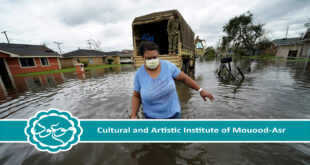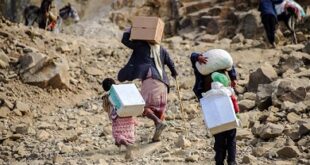The implications of this more recent understanding are profound, since those populations and societies least able to cope with the impact of climate change will have to contend with substantial changes. Decreases in crop yields and consequent food availability will be among the factors likely to make societies much more fragile and unstable, one effect being very substantial increases in migratory pressures, with these being strongly resisted by wealthier countries. When seen in combination with the persistent socio-economic divisions that already exist across the world, the potential for serious social unrest and political instability is considerable.
The Recent Politics of Climate Change
Among those resisting the implications of climate change have been large trans-national oil companies and oil-exporting countries. The former have funded policy institutes and others to promote critiques of climate change research and the latter have been deeply reluctant to support international protocols limiting carbon emissions. Beyond these forces, which may be powerful and well-funded, a much more serious issue in the first decade of the 21st century was that the world’s largest emitter of carbon, the United States, had an administration in power that was deeply suspicious of climate change. The United States withdrew from the Kyoto Climate Change Protocol within months of George W Bush assuming office in 2001, and throughout the next eight years, the United States played little part in climate change negotiations.
While this altered with the election of Barack Obama in 2008, by the middle of this year, part of the opposition to his administration was coming from the Tea Party Movement and other right-wing elements in the Republican Party, one feature of their outlook being a deep suspicion of climate change combined with strong opposition to any limits on carbon emissions. November’s mid-term elections to Congress may determine whether these views solidify in Congress, – a major risk, if the Democrats lose control of either house.
Climate Change and the Military
We are at a point where a combination of factors, including the attitude of the Obama administration, means that the risks emanating from climate change are being more generally recognised. This coincides with a significant change in attitude among military planners. In military planning units and security think tanks across the western world climate change is now seen as one of the key future drivers of insecurity. It is an outlook that stems partly from a tendency for military analysts to look long-term. Unlike most political and commercial institutions that tend to focus on 4-10 year time spans, military planning is frequently much longer term, to a certain extent because military forces depend partly on the development of systems involving development and procurement processes that stretch over decades.
Much of the analysis on climate change coming from military sources produces results that coincide with the ideas of radical environmental analysts, pointing to the social and political consequences, the risks of state failure and the rise of radical oppositional movements. However, when it comes to responses, the primary military focus is on maintaining the security of the state, either on its own or in alliance with others. This is to be expected and is legitimate from the perspective of a military organisation – its reason for being is to keep the state secure. Thus, the emphasis may be on increased border security and the patrolling of potential migratory routes, and the intervention capabilities necessary to stabilise failing states and ungoverned space that may be a consequence of the impact of climate change. What this almost never involves, is advocating the primary preventative measure that is required for responding to climate change – a rapid move towards an ultra-low carbon economy.
The Military Complication
Discussions with military analysts, including those who are engaging with Oxford Research Group’s Sustainable Security Programme, frequently focus on issues concerning climate change and security. There is sometimes recognition by some in the military that there should be a role for senior military officers in advocating a low carbon transition as part of a process of conflict prevention. The complication is that the loss of a decade at the start of the current century means that there will inevitably be numerous impacts of climate change, even if a low carbon transition can be achieved in the next two decades. From a military perspective it can therefore seem reasonable and legitimate to plan for security consequences. The problem is that this can have the negative effect of providing a political excuse to slow down the rate of transition. If “we”, in a rich country, can maintain our well-being by protecting ourselves from the security impacts of climate change, then engaging in the huge changes involved in a low carbon transition can assume a lesser political priority. This is an attractive proposition for most politicians given the likely electoral unpopularity of the transition.
The response to this “securitising” of climate change is that some adaptation is undoubtedly going to be required, but that little of this has to do with the military. There will need to be a far greater focus on issues such as improving water management across the tropics and sub-tropics, breeding more drought-tolerant crops, preparing for more severe storms and protecting low-lying regions, but these are not the ultimate answer to climate change. That involves addressing the problem at root – controlling and minimising carbon emissions.
A substantial element of Oxford Research Group’s Sustainable Security approach is the recognition that conflict prevention is at the root of society’s response to climate change, and that the next five years are crucial in moving towards a more emancipated and environmentally sustainable world. Where there is much work to do is in convincing those in the international security community that it is essential to prevent climate change and that responding to it by protecting elite societies is fundamentally inadequate. It is a huge task but it is at least aided by the manner in which military analysts do have the ability and willingness to think long-term. That is a welcome asset in difficult circumstances.

Climate Change and Security
Pages: 1 2
 Mouood Mouood English Edition
Mouood Mouood English Edition



